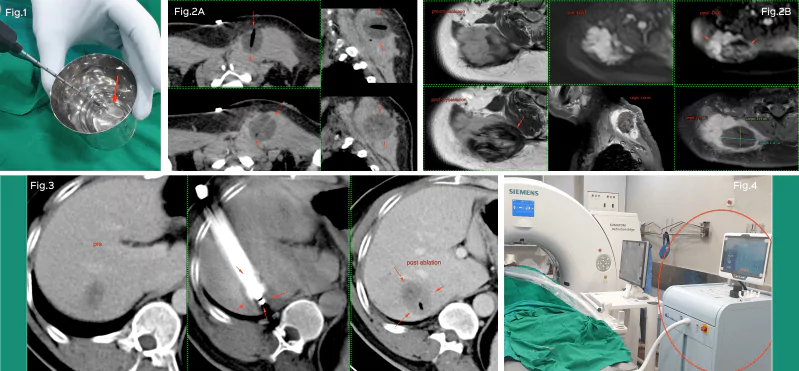Cryoablation
There are many tumor ablation techniques. Radiofrequency ablation (RFA) has been around for the last 16 years and we have used it for bone tumors such as osteoid osteoma, osteoblastoma and chondroblastoma and liver, and lung malignancies, with good success. However, RFA uses thermal energy and the exact diameter of ablation always remains a guestimate.
Cryoablation is a new technique where freezing temperatures are used to kill tumor cells by creating ice-balls within the tumors.
Liquid nitrogen or argon is used depending on the system. With liquid nitrogen, the temperate at the centre of the ice-ball can reach up to minus 196 degrees Celsius with lethal temperatures of minus 20 to minus 40 degrees in the rest of the ice-ball (Fig. 1). More importantly, the ice-ball can be visualized on USG, CT or MRI as the case may be, allowing accurate monitoring of the ablation area (Figs. 2, 3).
The machine is compact and sits in the CT scan room (Fig. 4). The procedure is easily done on an out-patient basis in day-care, mostly under local anesthesia (Fig. 3), some patients needing intravenous sedation if the tumors are inherently painful (Fig. 2).








